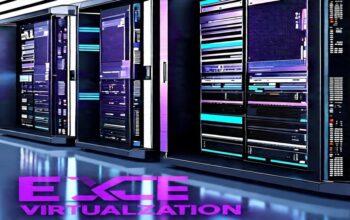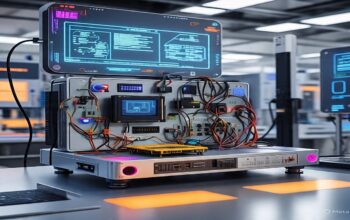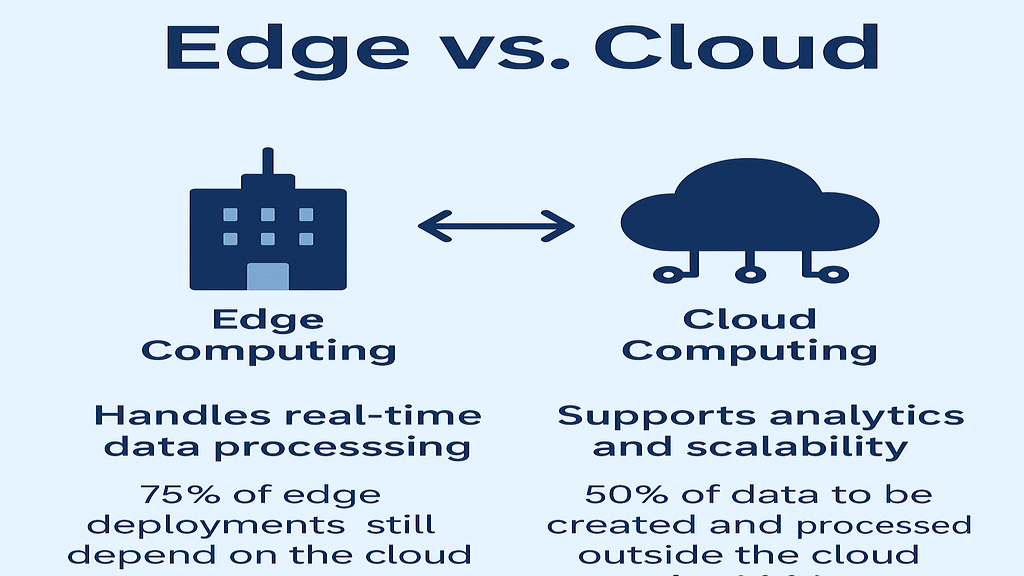Artificial Intelligence is revolutionizing the majority of industries. How business is run and the way people work are both being changed with this advancement. Be it a self-driving car or AI-based customer service, almost every element of life is being impacted by AI. The impact is significant in the job market. Let’s talk about what you need to know about the changing landscape of employment and the skills required for the future.
Covered Contents
ToggleAI and Automation: The Powerful Duo
AI and automation are increasingly working in tandem to transform industries. Automation means machines or software performing tasks that humans are doing. AI is making these machines smarter so that they can learn from experience and even make their own decisions.
RPA is an example where AI is applied through robots that allow businesses to automate simple things like data entry, scheduling, and customer service.
Manufacturing:
Robots replace human beings in manufacturing car industries due to efficiency and lower cost.
Retail and Logistics:
AI self-service systems manage the inventory as well as track the delivery, using data analytics to predict consumer demand, making the supply chains efficient and productive.
Impact on Jobs:
Job loss in a few industries:
Manufacturing jobs that are repetitive in nature and customer services have retail sectors high up on the risk list of being replaced by robots and AI.
Technology and Management Jobs:
The need to monitor, run, and improve these artificial intelligence systems will rise as automation escalates.
Health Care and AI: Scope and Challenges
Health Care is another industry that, with AI, is revolutionizing by enhancing patient care and conducting better research.
Medical Diagnostics:
With the help of AI, diagnosis based on medical images such as X-rays and MRIs can find diseases like cancer much more sensitively and efficiently than humans.
Personalized Medicine:
AI enables doctors to design treatments specific to a patient based on his or her genetics and lifestyle.
Drug Discovery:
AI algorithms can predict the potential effectiveness of drug compounds for specific diseases and, in turn, accelerate the drug development process.
Impact on Jobs:
Increased Demand for Healthcare Professionals:
AI supports doctors and nurses, making their jobs more efficient. As AI handles routine tasks, healthcare professionals can devote their time to other valuable services like patient care.
New Jobs in Data Science and AI Engineering:
As AI is becoming increasingly important in healthcare, a new requirement for data scientists, AI engineers, and healthcare IT professionals will be generated.
Emergence of AI in Customer Service
AI is increasingly being leveraged for customer service, from chatbots to voice assistants.
Chatbots and Virtual Assistants:
AI chatbots address commonly asked questions and respond to them 24/7 while processing orders and answering questions.
Voice Recognition Systems:
AI-based voice assistants, including Siri, Alexa, and Google Assistant, help users manage everyday activities, ranging from reminders to ordering items online.
Personalized Customer Experience:
AI can analyze customers‘ preferences and suggest relevant products for shopping.
Effect on Employment:
Less Job Opportunity in Entry-Level Customer Services: Basic customer service inquiries may be automatically solved using an automated system, and human customer services staff is no longer required.
More Sensitive Jobs:
Many customer service jobs are being replaced, but many human jobs will still be necessary because they are more complex and require problem-solving skills. In
In addition, training and managing AI systems will expand.
Education is Getting That Much Better with AI
AI is also reinventing education; it delivers personalization in learning and makes education accessible to all.
Smart Learning Systems:
AI-enabled software assesses the performance of learners and adapts lessons according to their needs, ensuring each learner experiences a personalized way of learning.
Online learning:
AI allows the delivery of engaging online courses, designed to evolve with student development, to provide real-time feedback and suggestions.
Administrative Support:
AI helps institutions make administrative work easier, such as grading and scheduling, for educators to spend more time teaching.
Impact on Employment:
Increase in AI Teachers:
As AI is increasing its importance in educational systems, more AI-tailored teaching tools will be sought by those teachers.
Emerging Work Opportunities in Education Technology:
Online and AI-based education environments also open up new work opportunities for instructional design, content creation, and technical support.
AI in Finance: A Game Changer:
The finance industry is embracing AI to make better decisions, enhance efficiency, and mitigate risks.
Fraud Detection:
AI algorithms detect suspicious patterns in transaction data, thereby preventing fraud.
Personalized Financial Advice: AI through robo-advisors provides investment recommendations that cater to individual financial goals.
Automated Trading:
AI can scan enormous financial data and make investment decisions in real time to enhance speed and accuracy in trading.
Impact on Jobs:
Decreased Demand for Old Positions:
Certain finance careers, such as stock traders and financial analysts, may experience a decreased demand due to automation driven by AI.
Growing Roles in AI and Data:
New opportunities will be found in AI development, data science, and machine learning, especially in developing, managing, and improving AI algorithms in financial services.
New Skills Required for an AI World
For instance, as AI changes the nature of work, therefore, laborers will have to acquire skills that are in demand.
Digital Literacy:
Most industries can prove to be dependent on knowing how these digital tools and AI work. Basic knowledge related to data analysis, machine learning, and coding would be highly beneficial.
Creativity and Emotional Intelligence cannot be replicated by AI. Human jobs requiring critical thinking, creativity, and empathy in environments like design, healthcare, and leadership will continue to depend on these human capabilities.
Ability to become adaptive to new technologies and ways of working will be crucial to gain competitive advantage in the labor market.
Leverage on Developing Competencies:
Data Science and Analytics:
As AI depends much on data, jobs that deal with big data will continue to rise.
AI and Machine Learning: Developing AI systems and knowing how AI works will be extremely useful in the future.
Since AI cannot replace human abilities like communication, problem-solving, and leadership, soft skills are most important.
Future of Work: Cooperation Between Humans and AI
It is possible to view AI as a tool that will cooperate with humans rather than as a danger. The majority of professions will change to incorporate AI rather than perish.
Collaboration between people and AI:
AI can do repetitive jobs, while humans can manage the remaining work. For example, an advertising staff will use artificial intelligence to evaluate client data, but humans stay responsible for strategy and creativity.
New industries and types of jobs will also rise from the advancements in AI technology, just like with the internet, where new roles for web development, digital marketing, and social media managers have come into existence.
AI in SMEs:
SMEs can continue to improve their operations from customer support to marketing aspects by using tools with AI, in which they may find it easier to compete with large companies.
Conclusion: Embracing Change
AI is changing the job market in deep ways, presenting a challenge and an opportunity. Some jobs will disappear; others will be created. Many will change. This new landscape demands flexibility, learning new skills, and readiness to work with AI technology. This shift enables workers to be at the forefront of success in this changing job market.
Adapt to New Roles:
The skills like data science, emotional intelligence, and creative problem-solving would complement AI.
The new economy requires upskilling:
With constant learning and exposure to the new technologies developed, people will remain relevant.
AI as a Tool, Not a Replacement:
Make use of AI to improve your work rather than as a means of losing your job. The need for human qualities like compassion and innovative thinking will never go away.
Those who can adjust and become proficient with technology will be the most equipped for success in the future.




4 thoughts on “How AI is Changing the Job Market and What You Need to Know”